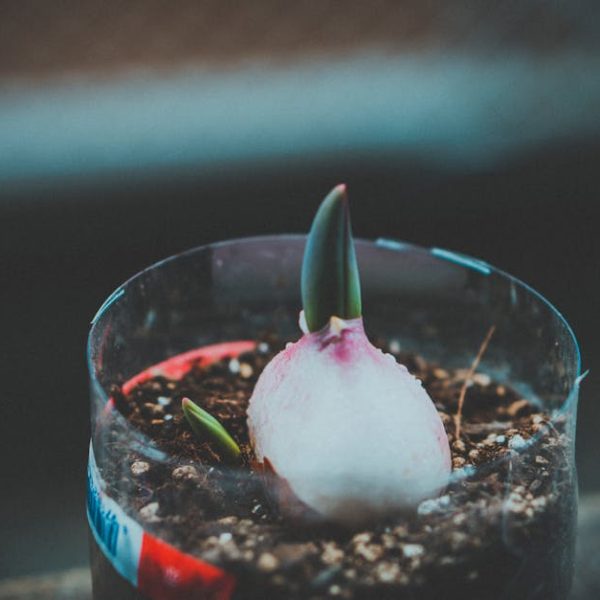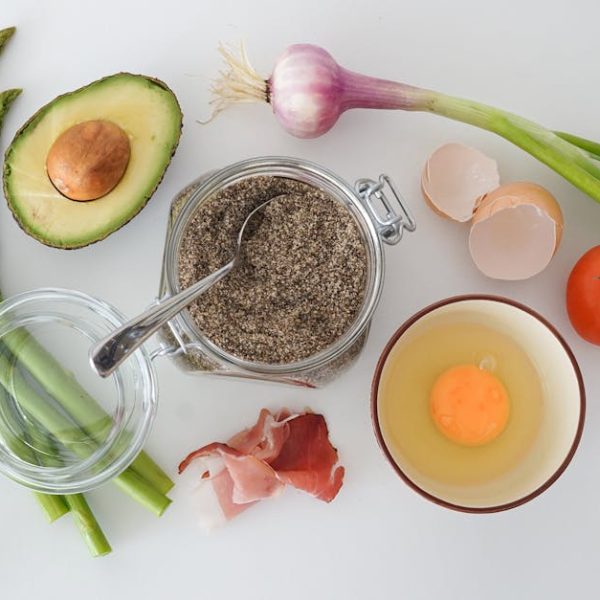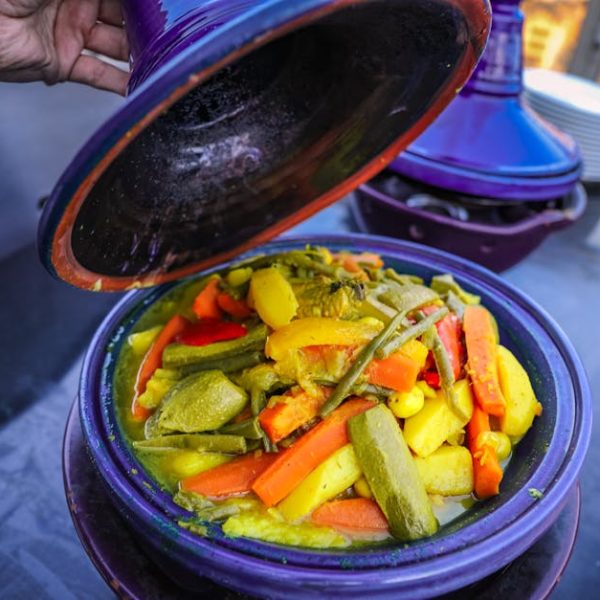To start off, let’s lay the groundwork by understanding the basics of ginger storage. Fresh ginger, with its feisty tang and invigorating scent, is a wonder ingredient that elevates any dish it is added to. However, preserving its freshness is crucial for maintaining not only its unique flavor and texture but also its numerous health benefits. Like storing any foodstuff, the ideal storage conditions for ginger generally involve a cool, dry place; however, other factors like humidity and lighting can also affect its freshness.
- Quick Tips for Ginger Freshness:
- Pay attention to temperature and humidity – ginger thrives in cool and dry conditions.
- Keep it away from direct sunlight and exposure to air to prevent it from drying out and losing its flavor.
Pairing these guidelines with careful observation to identify fresh ginger and signs of spoilage – such as softness, mold, or a dull appearance – will help you get the most out of this magical root.
Storing Fresh Ginger: Room Temperature
Oddly enough, one effective way of storing fresh ginger is at room temperature. This method works best when the ginger is whole and unpeeled. All you need is a cool, dry space, away from sunlight. A pantry or a cupboard will do nicely. In these conditions, a fresh ginger could retain its zest for a week or more.
- Do’s and Don’ts at Room Temperature:
- Do use a breathable bag (like a paper bag) to store ginger, to prevent sweating and thus mold growth.
- Don’t store cut ginger at room temperature – it deteriorates faster.
While room temperature provides convenience, refrigeration surely increases the life of your ginger. What, then, are the pros and cons of both methods? In comparison, storing ginger at room temperature is more convenient and does not compromise on flavor and texture. However, its shorter shelf life compared to refrigeration, particularly for cut ginger, can be a drawback.
Storing Fresh Ginger: Refrigeration
Storing ginger in a refrigerator is an excellent way of extending its shelf life, especially for cut ginger. Here are some tricks to keep your ginger fresh longer within the confines of your fridge.
- Place the unpeeled ginger in a resealable plastic bag.
- Push the air out of the bag and seal it tight.
- Store in the vegetable drawer of your refrigerator.
- Pro Tips for Ginger Refrigeration:
- For peeled or cut ginger, submerge it in vodka or sherry before refrigerating. The alcohol acts as a preservative and enhances the flavor!
- An unpeeled, whole ginger stored well can last up to three weeks in the fridge.
Storing ginger in the refrigerator offers a longer freshness period than room temperature storage. However, it requires more preparation and might consume extra room in your refrigerator. On the flip side, it ensures easy access to fresh ginger over a longer period, making it a popular choice for many households.
Storing Fresh Ginger: Freezing
Freezing ginger is another exciting option, especially if you’re looking to store the root for a longer duration. This method does tend to alter the texture of the ginger, making it softer, but it does not compromise the flavor – in fact, many people find it easier to grate or cut once it’s been frozen.
Here’s your checklist before you freeze the ginger:
- Rinse and dry the ginger.
- Slice, mince, or grate it as per your preference (optional).
- Lay it flat on a baking sheet or a plate and freeze.
- Once frozen, store in a ziplock bag or an airtight container.
When comparing the three methods we’ve discussed so far, there are various pros and cons. Storing ginger at room temperature requires minimal effort and retains texture but has a shorter shelf life. Refrigeration offers a longer freshness period but requires more preparation. On the other hand, freezing ensures the longest possible shelf life and easy usage, with the only risk being a slight change in texture.
Storing Dried, Pickled, and Candied Ginger
When it comes to other forms of ginger like dried, pickled, and candied, the storage parameters change slightly. Each of these forms comes with its unique challenges and practices.
- Quick Guide to Ginger Variants:
- Dried Ginger: Stored in a cool, dark place in an airtight container, dried ginger can last indefinitely, although it’s best used within a year for optimal flavor.
- Pickled Ginger: Once opened, pickled ginger should be kept in its brine or vinegar and refrigerated, where it can last for several months.
- Candied Ginger: This sweet treat should be stored in a cool, dry place in an airtight container. If properly stored, it can keep up to a year.
Following some general rules for these types of ginger, such as always using clean, dry spoons while handling, and securely sealing the storage containers can ensure they remain fresh and palatable for longer durations.
Using Stored Ginger: Tips for Maximum Freshness
While storage methods play a crucial part in maintaining the freshness of the ginger, how you use it makes a significant difference as well. Depending on the storage method used, there could be changes in the taste, texture, and potency of the ginger.
Make sure that you handle the ginger properly. For instance, if you’ve stored the ginger whole, only peel the amount you plan to use immediately, leaving the rest intact.
- Expert Advice for Using Stored Ginger:
- For refrigerated ginger, use a clean spoon or tongs to retrieve the ginger. This prevents any bacterial introduction into the container.
- Taste the ginger before adding it to dishes. Prolonged storage may affect its intensity; adjusting the amount used can help maintain flavor in your recipes.
All these steps will ensure you get to enjoy the crisp, zesty flavor of ginger for the longest time possible.
Proper Disposal of Spoiled Ginger
We all know that if not stored or monitored properly, ginger, like any other food item, can go bad. Consuming spoiled ginger can jeopardize your health causing food poisoning symptoms such as diarrhea, nausea, and abdominal cramps.
To dispose of spoiled ginger, follow these easy steps:
- Identify the spoiled ginger – look for soggy, moldy, or discolored parts.
- If only a portion is spoiled, cut this part off and discard it while checking the rest of the root for spoilage.
- Throw it into the compost if you have one or in the rubbish bin, securely sealed in a bag to prevent the spread of mold.
- Best Practices for Discarding Spoiled Ginger:
- Frequently inspect your ginger storage to note any changes or signs of rot.
- Don’t try to salvage overly moldy ginger. It could have spread spores throughout the entire root, making it unsafe for consumption.
By following these guidelines, you can ensure optimum storage, usage, and disposal of your ginger, making the most of this incredible, aromatic root.
Key Takeaway:
- Proper storage of ginger is crucial for maintaining its taste, texture, and nutritional value.
- Room temperature storage of unpeeled whole ginger can preserve the root for a week or more, while refrigeration can significantly enhance ginger’s shelf life.
- Freezing is another excellent option for long-term storage, although it slightly alters the ginger texture.
- Variants of ginger like dried, pickled and candied varieties, have specific storage requirements which, if followed, can prolong their freshness.
- The right handling of stored ginger directly influences its freshness and enhances recipes when included.
- Regularly monitoring ginger and properly disposing of spoiled pieces are vital for food safety.
Maintaining the freshness of this aromatic and flavorful root makes it easier for you to readily enjoy its varied benefits all year round. With this knowledge on the best ways to store fresh ginger at hand, feel free to buy your ginger in bulk and savor its zesty tang without concern over quick spoilage.
FAQs
Q: Is it safe to consume ginger that has some spots of mold, if I cut off the moldy parts?
A: It’s best not to consume ginger that has visible mold. The mold could have spread spores throughout the root which makes it unsafe for consumption.
Q: Can you store ginger and garlic together?
A: Yes, you can store ginger and garlic together as long as both are stored properly and inspected regularly for any signs of spoilage.
Q: Does the method of storing ginger affect its health benefits?
A: While the storage method can affect the taste and texture of ginger, the health benefits typically stay intact, barring any spoilage.
Q: Can I refill the brine or vinegar in which pickled ginger is stored to prolong its shelf life?
A: Refilling the brine or vinegar is not recommended as it might not have the same preservative qualities and could lead to spoilage.
Q: Can I store chopped ginger in olive oil in the refrigerator?
A: Yes, you can store chopped ginger in a jar filled with olive oil in the refrigerator. This can keep the ginger fresh for several weeks and also infuse the oil with flavor.
Feel free to share this insightful article with your friends and explore more interesting posts on our website!






